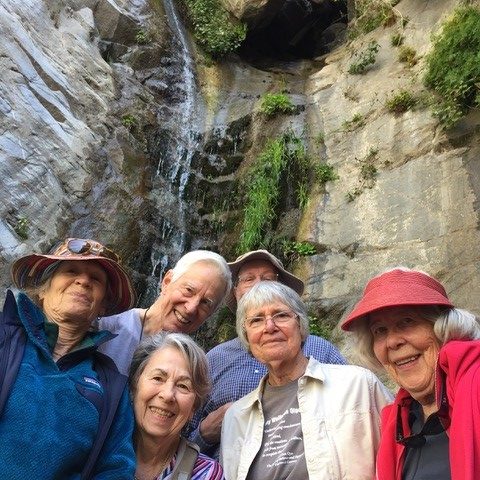March 30, 2024
Conversation on Care: Caregiving Trends in California
 It is estimated that 6.7 million adults in California are caregivers, with the majority (58%) being women. Caregivers in California are experiencing financial stress and physical and/or mental health problems related to their caregiving role. As California’s older adult population continues to grow, the need for caregiving support is expected to dramatically increase.
It is estimated that 6.7 million adults in California are caregivers, with the majority (58%) being women. Caregivers in California are experiencing financial stress and physical and/or mental health problems related to their caregiving role. As California’s older adult population continues to grow, the need for caregiving support is expected to dramatically increase.
Village Movement California is collaborating with the California Coalition on Family Caregiving to better support our older adults and family caregivers, especially for struggling middle-income households.
Villages are intentional, caring communities that offer vital touchpoints for caregiving for and to older adults living at home –– particularly those who are widows, solo agers, or those who do not have children living close by.
As part of the upcoming Caregiver’s Journey conference, we participated in a recent webinar discussing the challenges California caregivers face. Below are some key highlights from our conversation. You can watch the full webinar here.
WHO IS CARING?
- Caregivers in the state represent every adult age group; nearly 60% were 45 years of age or older, with 20% being 65 years of age and older.
- They are caring for much older individuals that are prone to frailty, at higher risk for falls, and more likely to develop dementia–all of which intensifies the demands of caregiving.
- 50% of caregivers report providing one to five hours of care during a typical week, 25% provide between six and 19 hours of care, and one in eight provides 30 plus hours of care.
- More than half of caregivers reported working a full-time job (which was defined as 21 or more hours per week), and about 10% reported working a part-time job.
HOW ARE THEY FARING?
- Most family and friend caregivers are not paid. In California nine out of 10 caregivers reported that they receive no payment for their caregiving activities.
- Most caregivers also end up paying for additional care related expenses. It is estimated that a caregiver covers $7,200 per year in out-of-pocket costs for care-related household and healthcare expenses.
- The hidden costs of caregiving extend beyond monetary value. Caregivers are at an increased risk of negative physical or mental health outcomes in California.
- One in seven caregivers reported a physical or mental health problem related to their caregiving role. The rate is much higher in racial or ethnic groups such as the Black or Pacific Islander communities.

